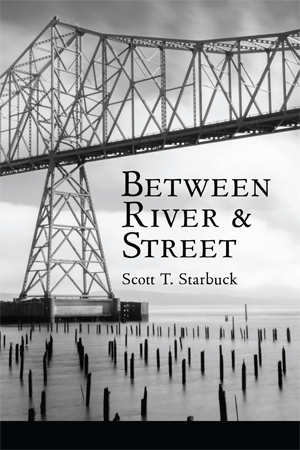By Scott T. Starbuck. MoonPath Press, 2021.
 I’m grateful to MoonPath Press in Oregon for publishing my new book documenting vanishing Pacific Northwest salmon culture. Previously I posted about this from a historical perspective, and this book continues that theme, except it is based on people I met, places I fished, and climate emergency we are experiencing.
I’m grateful to MoonPath Press in Oregon for publishing my new book documenting vanishing Pacific Northwest salmon culture. Previously I posted about this from a historical perspective, and this book continues that theme, except it is based on people I met, places I fished, and climate emergency we are experiencing.
On April 29, 2021, apnews.com reported, “California officials will again truck [‘more than 16.8 million’] young salmon raised at fish hatcheries in the state’s Central Valley agricultural region to the Pacific Ocean because projected river conditions show that the waterways the fish use to travel downstream will be historically low and warm due to increasing drought.” The Associated Press reported on May 14, 2021, “Yurok fish biologists who have been testing the baby salmon in the lower Klamath River are finding that 70 percent of the fish are already dead in the traps used to collect them and 97 percent are infected by the bacteria known as C. shasta.” My book’s MoonPath Press Website reports “a Metro Vancouver BC study noted unless carbon emissions are quickly reduced, ‘Vancouver [BC] would be warmer than present-day San Diego by the 2050s’ as reported [by Larry Pynn] in the Vancouver Sun in 2017 .” What will that mean for salmon and salmon people?
The MoonPath site mentions my 2016 “Letter” at The Columbian daily newspaper in Vancouver, Washington: “[In 2015] the Washington Department of Fish and Wildlife trucked salmon up low rivers to spawn, Oregon Department of Fish and Wildlife trucked salmon out of Central Oregon due to warm waters, and California trucked smolts to the ocean.” Similarly, “an email from Bob Lackey, Professor of Fisheries at Oregon State University, [noted] ‘In a 100 years wild salmon runs south of Canada will be reduced to remnant runs.'”
In response, my book reflects some of the water magic before it may be gone. I wrote about my fishing buddy Slim Bracken, other fishermen, fellow whale watching and charter fishing captains, my time fishing out of Depoe Bay, Oregon and Washington people, “The Wolf in Estacada’s Safari Club,” “Wild Trout,” “80-year-old sturgeon/cruising river bank” — in short, many scenic gifts of the Pacific Northwest for 10,000 years.
Endorsements
“some of the finest fishing poems I’ve ever read”
–Henry Hughes, Oregon Book Award-winning poet and author of Back Seat with Fish
“people met or recounted at riverbanks, little bookstores, out-of-the-way cafes, bars.”
–Florence Sage, author of Nevertheless: Poems from the Gray Area and The Man Who Whistled, The Woman Who Wished: A Polish-Canadian Story
“Oregon poems-humble yet heartfelt, all the way to the bone. Like filets of rosy salmon flesh, cooked on bonfire coals; these words lift easily from the carcass of felt sense. [ . . . . ] moss and fern, salal and spruce, wet stone and rivulet-but also the hominids, on the shores and in the quik marts and cafés of classic hometowns from Astoria south to the Siskiyou. These pages honor Oregon existence: good folk whose unfettered reverence plays potent role in the annual cycle of lives lived out in place.”
–Nancy Cook, author of Siltwater, a collection of essays. She teaches writing in Astoria, where for eight years she also served as the editor of RAIN Magazine.
“deep listener, ace observer, shape-shifting storyteller. He’s historian, philosopher, climatologist, ecologist, lover, rememberer. He’s salmon, and salmon fisherman.”
–Ken Waldman, author of The Writing Party and Leftovers and Gravy
Biography
Scott T. Starbuck’s book of climate poems Hawk on Wire was a July 2017 “Editor’s Pick” at Newpages.com and selected from over 1,500 books as a 2018 Montaigne Medal Finalist at Eric Hoffer Awards for “the most thought-provoking books.” His book My Bridge at the End of the World, New and Selected Poems, was a 2020 Finalist for the Blue Light Press Book Award. Starbuck taught ecopoetry workshops the past two years at Scripps Institution of Oceanography in UC San Diego Masters of Advanced Studies Program in Climate Science and Policy. His Trees, Fish, and Dreams Climateblog has readers in 110 countries.
